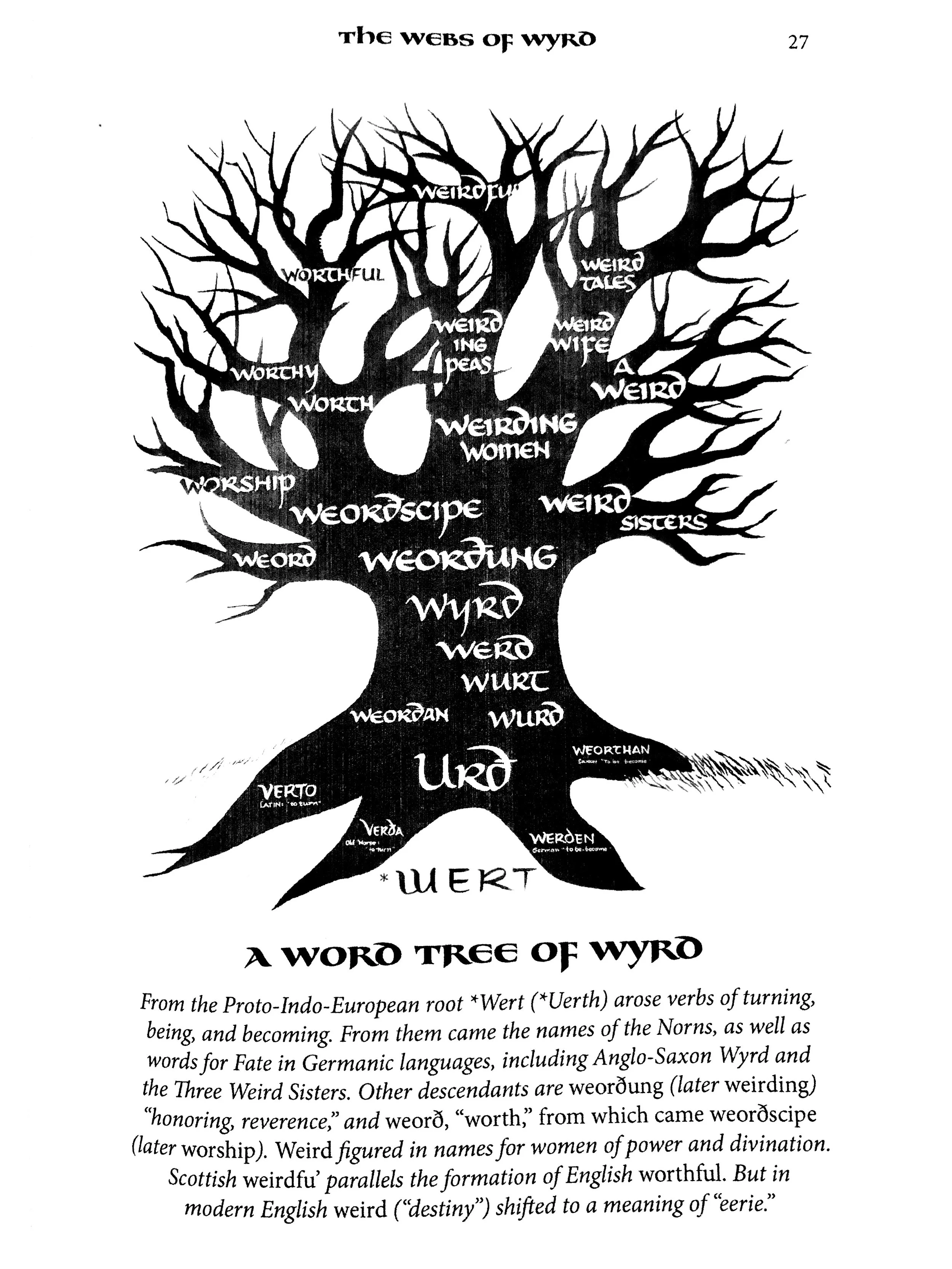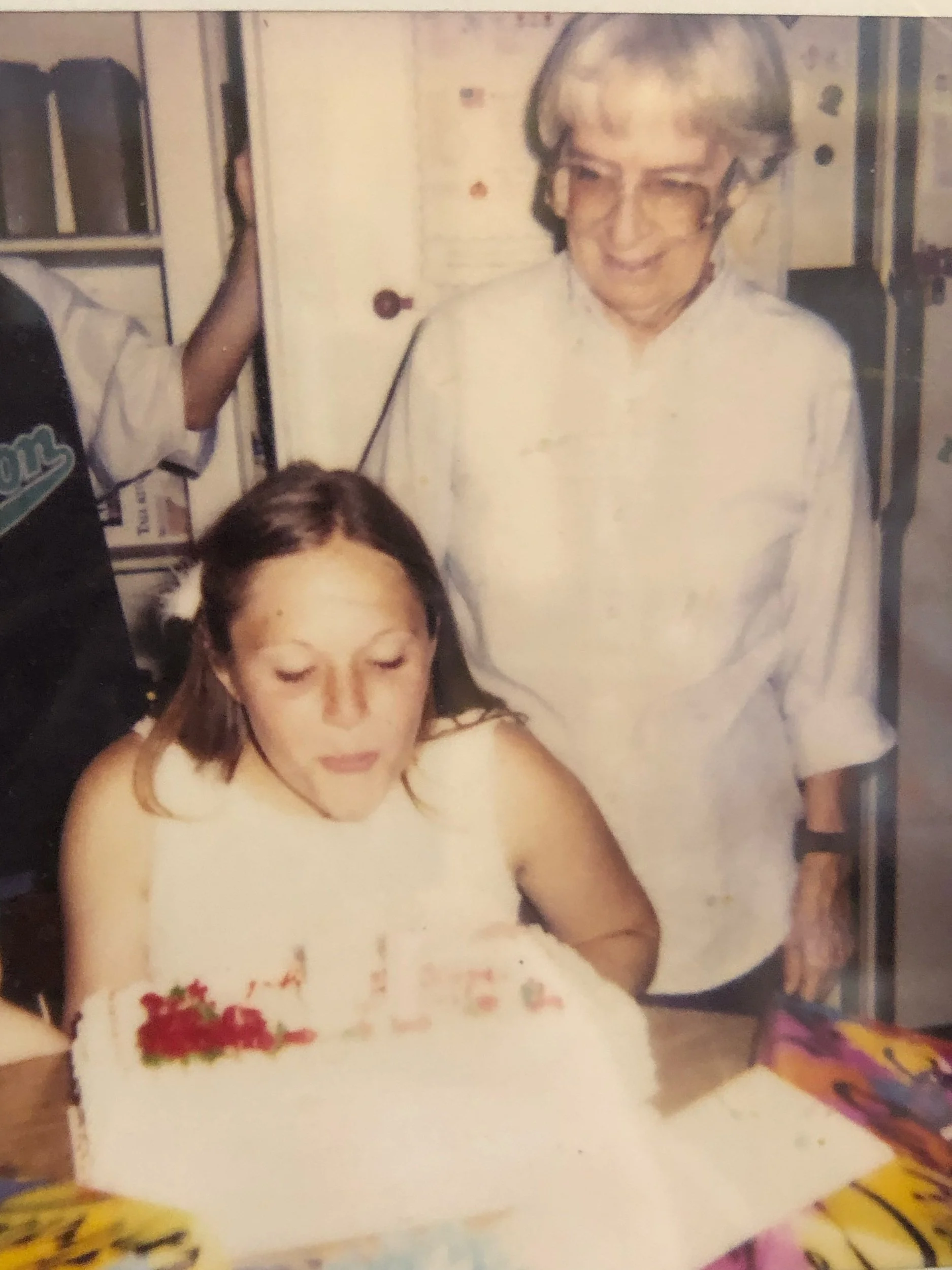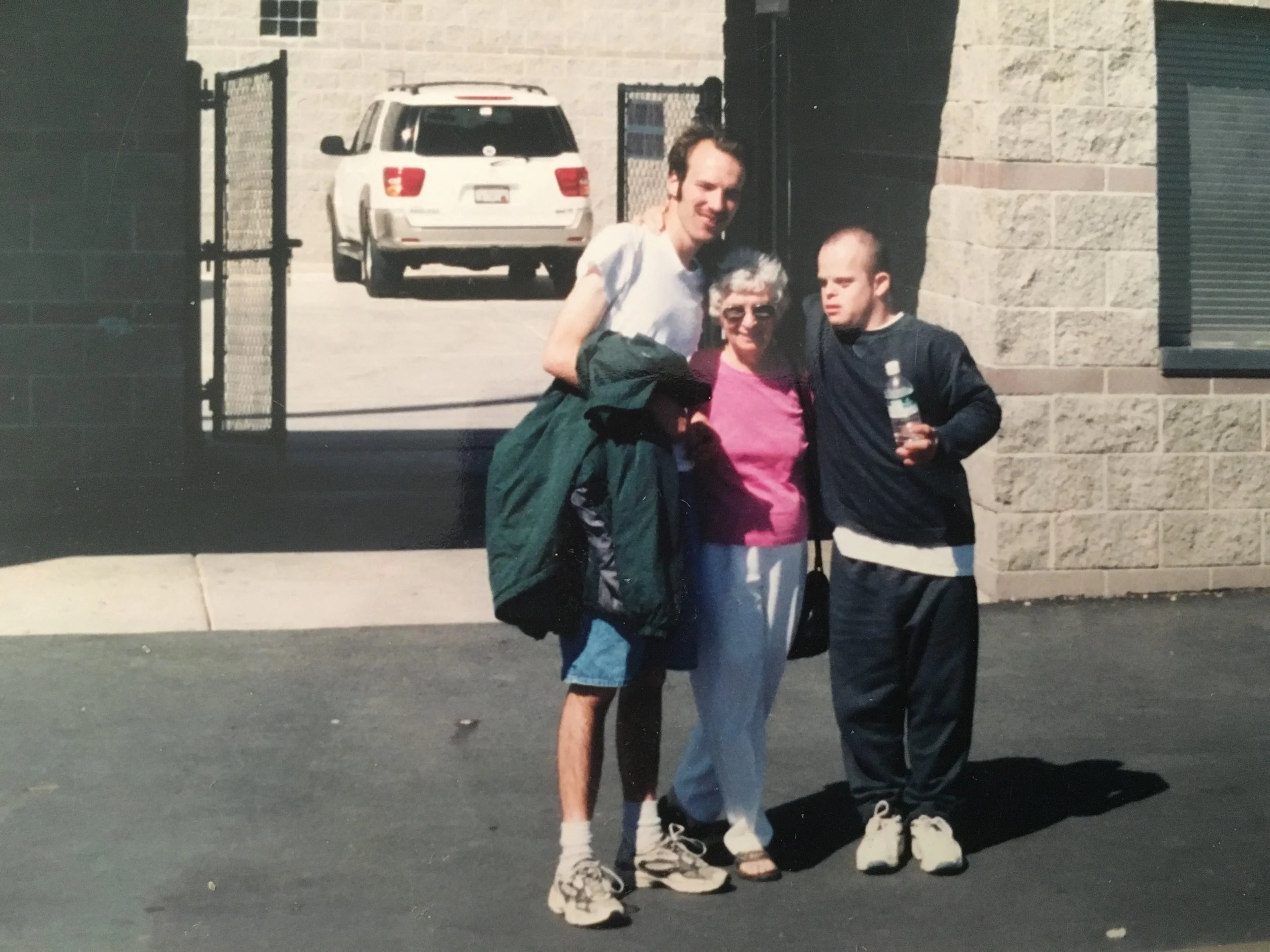
Our Philosophy
Why Weird?
The theoretical basis of full desert weirdo
The meaning & etymology of the word “Weird” has a fascinating origin that ultimately represents alchemy and transformation.
Etymologically, the germanic root “wyrd” (pronounced “veerd”) relates to the words spin and turn, and has strong linguistic ties to pre-christian householders in Europe who would weave and sing while doing daily work. Spinning intention and magic into ceremonial and ritual cloth often employed the use of sacred numbers and was accomplished with great skill and care, since clothing often symbolized someone’s place within a community or ceremony. When Roman Christianity spread throughout Europe, native weavers and spinners (primarily women) were persecuted as “witches” for this work, and the word subsequently became associated with being vile or evil. This word and its interesting linguistic origins relate directly to my personal upbringing and background, which is why I have chosen to embed it into my philosophy and art.
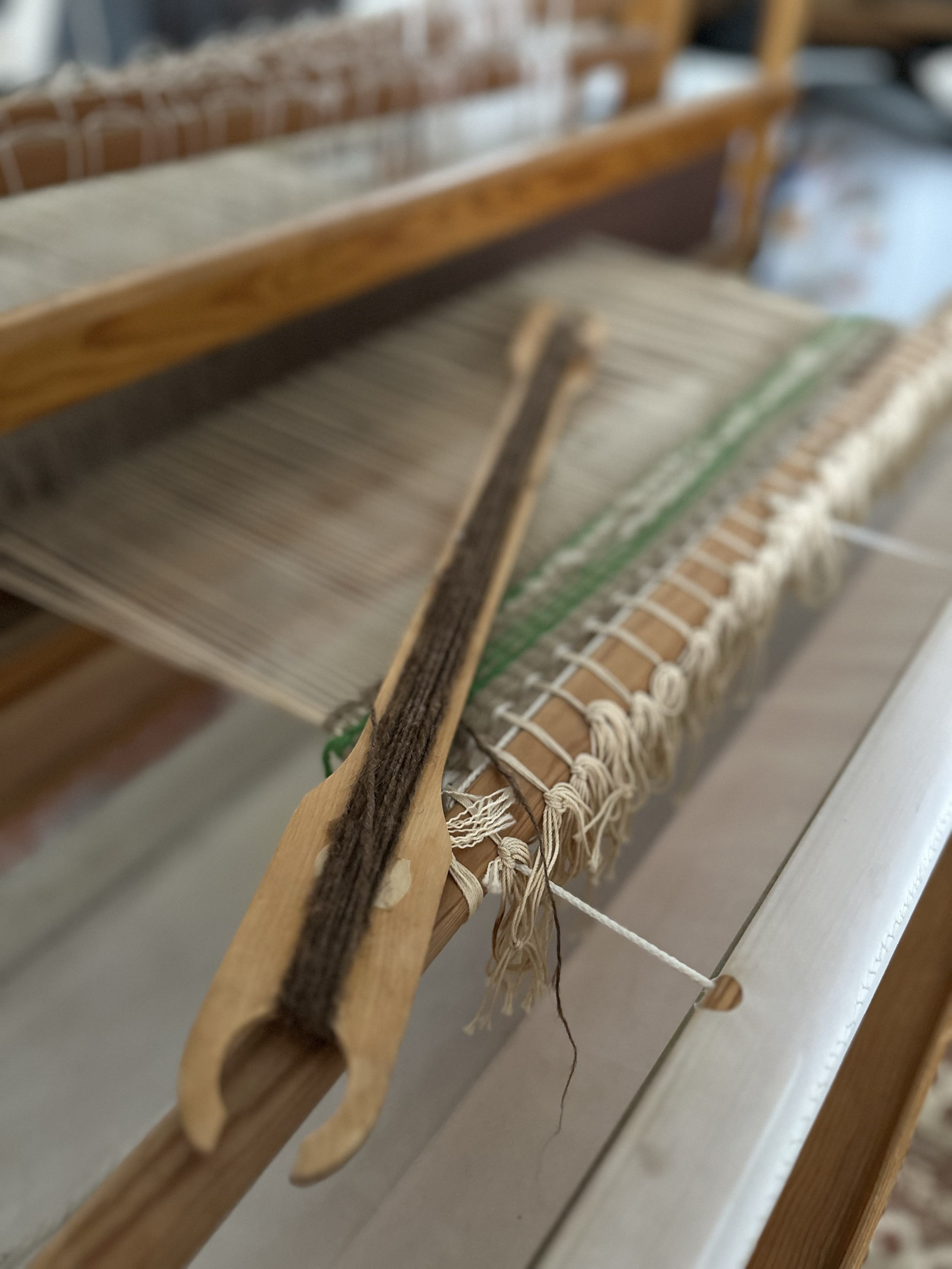
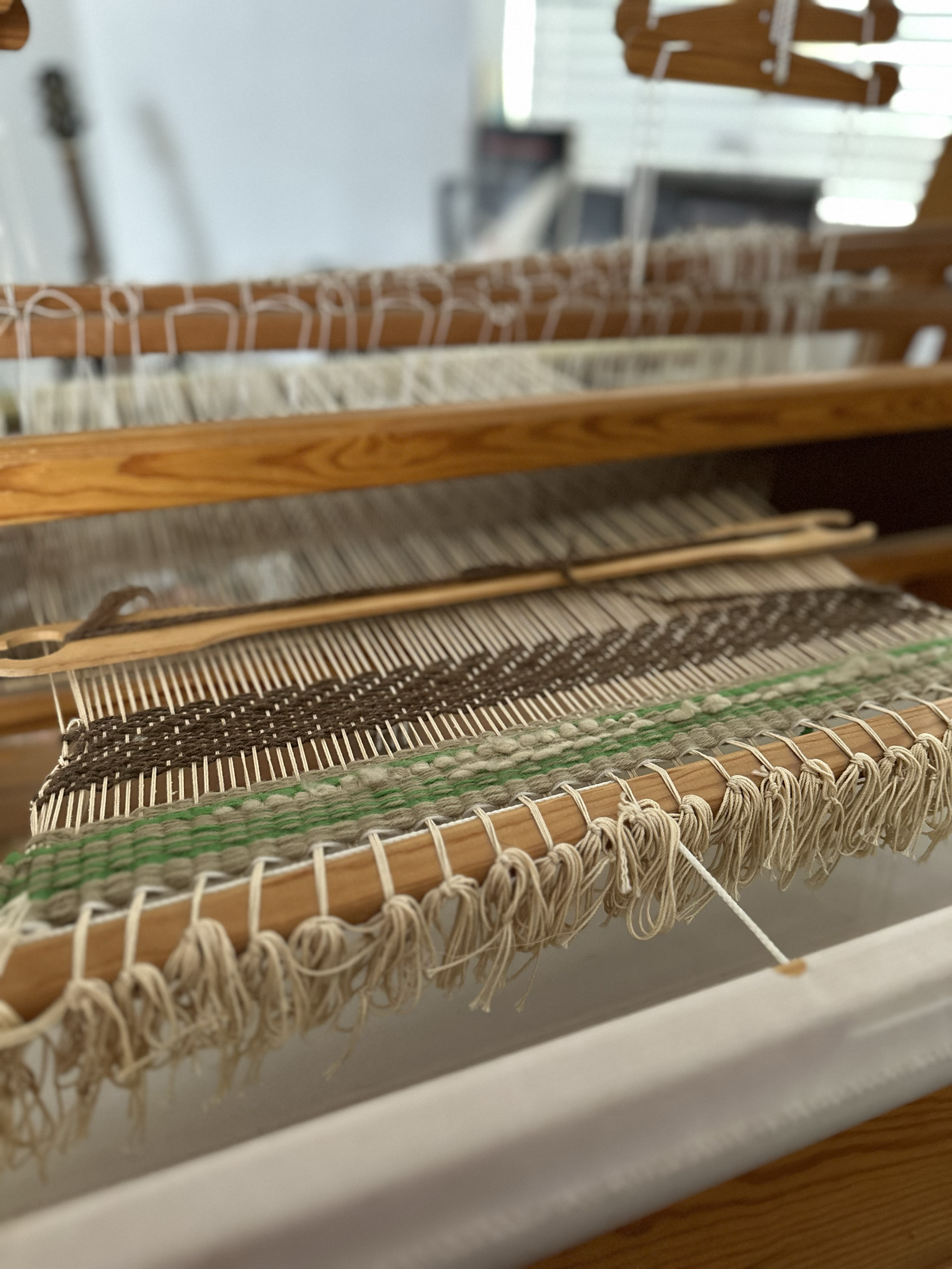


Although I love beautiful things, I have never been particularly talented in aesthetics. I did not start my silversmith journey with intentions to adorn others or to satisfy a sense of visual appeal. It was the process of transformation that drew me in and stimulated my imagination. When working with a piece of rough metal I turn it over and over in my hands and from a sensory perspective, feel into the potential of its many possibilities. After being subjected to an intense process of heat, molding, and pressure, an entirely new creation will emerge. This is the essence of Wyrding: creating or transforming via some process of alchemy. Whether it is turning the compost heap, telling stories, weaving threads into cloth, translating sounds into melodies, or soldering metal into new forms: it’s all Wyrding. These words (turn, spin) symbolically represent alchemy often, such as in idioms like “spin a yarn” and metaphors like “turn back time”. Consider when we describe something in a process of change, that we often will say it is “turning” into something else.
I grew up in a non-traditional family environment. My paternal grandparents were foster parents for the local regional center and supported people who were intellectually and physically disabled in addition to having nine children of their own. I have a large, diverse, and eclectic family as a result. So as my own parents struggled with full-time work, divorce, and anger management, I spent my youth at grandma’s house in a home with family members who looked (and behaved) differently than most of my peers’ families. I have known from an early age that the world is not fair for people who do not look or behave a certain way (white/cis/able-bodied), but also that LOVE does not have to resemble what white supremacist patriarchy markets to us as “stability”. Integrating and sitting deeply with inequity from a young age has led me to translating that wisdom into a philosophy of advocacy for people like my family members and myself. I will always have a deep and long-standing affinity for all things idiosyncratic. Beings that exist in the margins of society who are unique, strange, forgotten, distinct, unusual, misunderstood, or tell an alternative story feel like family to me. I am allied with those that do not fit in, whether intentionally or not. Admittedly, part of this early knowing has resulted in a bit of a personal antagonistic rebellious streak and a desire to shake things up—to change the perspectives of what most consider “normal”. In truth however it is with great humility that I am motivated to respect all the parts of us that are unseen or misunderstood. The parts of our true essence that get lost in neurotypical ideation and in our performance of day-to-day stereotypes, identities, and norms. This deep respect kindles my hope that someday we can change the definition of normal in our communities. That we can be our true, weird, beautiful selves and still be safe and accepted.
Is it really that radical to consider a community that values ALL of its beings, regardless of their perceived proximity to the middle of a bell curve?
Full Desert Weirdo was partly inspired by my paternal grandmother (a parent, craftsperson, den mother, healer, and educator) but also by the many amazing humans I have met throughout my life and work history in non-traditional education. A large part of my work as a Wyrdo has been related to neurodivergence and serving families in the autism community. I have also been gifted with various clinical diagnoses of my own throughout life that have provided personal insight.
Both these individual and collective experiences have shaped who Full Desert Weirdo has become.
From my own atypical home life and academic struggles, to behavior analysis and ABA providers, state programs, and non-profits—these experiences have led me to FULL acceptance (admiration, even) of my own idiosyncrasies and ultimately in embracing a philosophy of being your own brand of WEIRD.
Full Desert Weirdo believes in “embracing your inner outlier” and bringing one’s personal specialities into service to create meaningful social changes.


